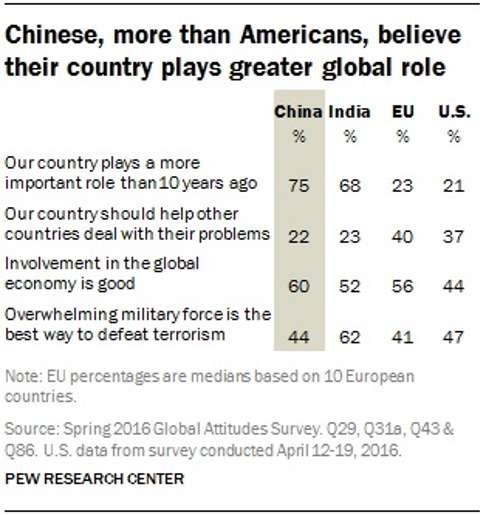Most Chinese people recognise China’s growing prominence on the world stage but have also become more wary of “foreign influence” and potential military conflict from simmering territorial disputes, a survey has found.
In the poll published October 5 by the U.S.-based Pew Research Centre, three-quarters of mainland Chinese respondents said they believed China was now playing a more important role in the world than it was 10 years ago. Only 10 per cent thought otherwise.
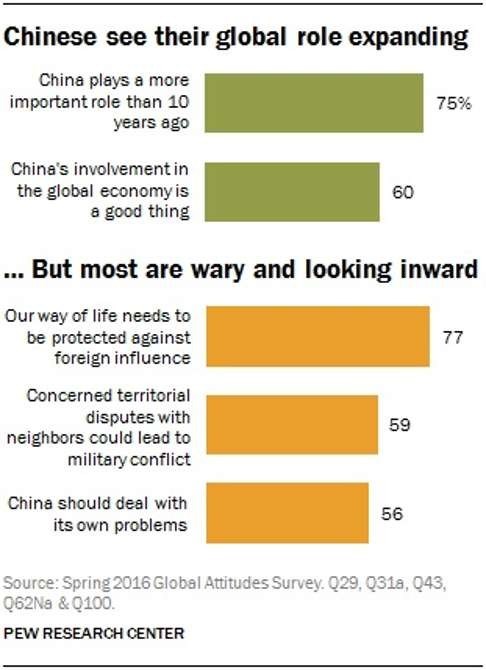
Over the past decade, China has surpassed Japan to become the world’s second-largest economy. It has also become increasingly assertive in foreign affairs and is challenging the geopolitical balance of power in the region.
Clinton more popular than Trump in China, Pew survey finds
But the country’s growing economic might and rising aspirations has also caused some unease among its own people.
“Such self-confidence about China’s international stature coexists with some degree of anxiety and a general tendency to look inward more than outward,” the Pew report said.
Though they expressed satisfaction with China’s presence on the world stage, more than half of the Chinese respondents believed the country should focus on its own problems. Only 22 per cent believed China should help other nations.
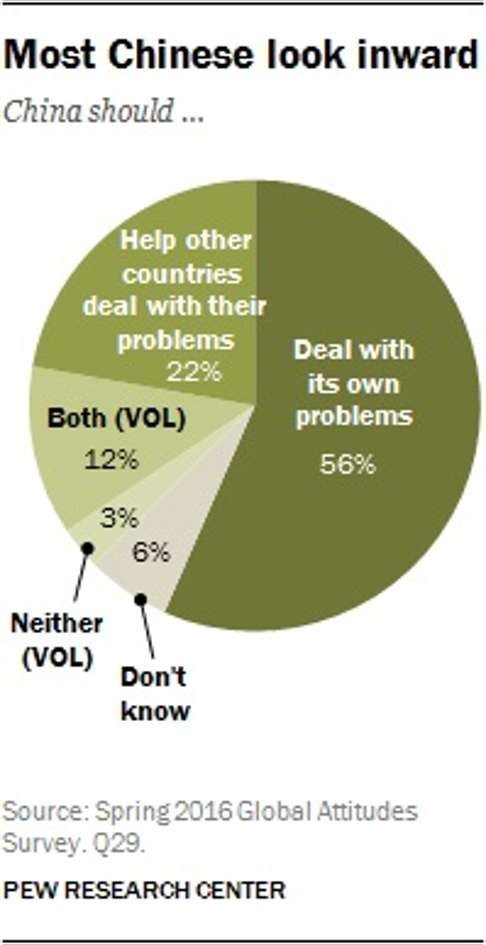
More than three-quarters thought their way of life needed to be protected from foreign influence – 13 percentage points up from 2002. About 80 per cent of those aged at least 50 believed the Chinese way of life had to be protected.
Beijing has repeatedly warned its people against foreign influence – in particular the infiltration of “western anti-China forces” – in all aspects of society, ranging from religious communities, non-government organisations, rights activists and lawyers as well as university campuses.
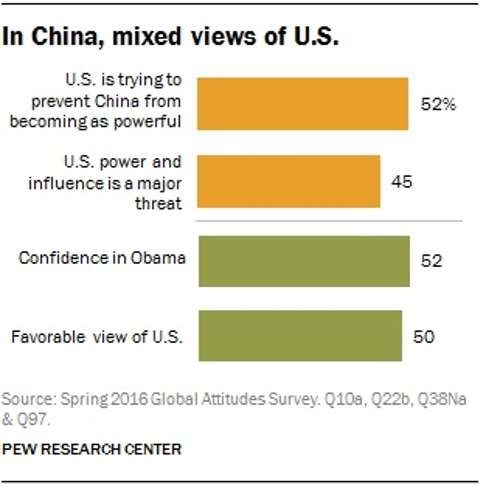

The survey found that in terms of global threats, Chinese people were most concerned about the US, surpassing their concerns about global economic instability, climate change and Islamic State.
In the survey, 45 per cent of respondents saw US power and influence as a major threat to China, compared with 39 per cent in the same survey in 2013.
About 52 per cent of them believed the United States was trying to stop China from becoming an equal with the US. Despite the perceived threat, half of the respondents still gave America a favourable rating, while 44 per cent rated it negatively
Six in every 10 Chinese people polled expressed concern that territorial disputes between Beijing and neighbouring countries could lead to military conflict.
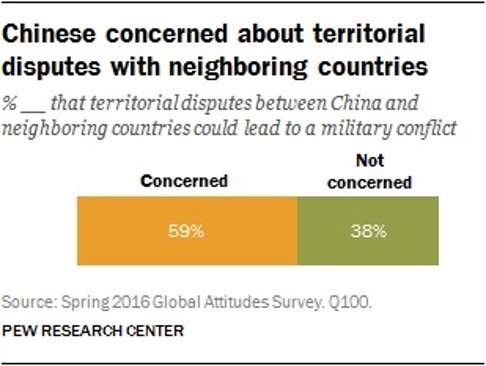
China has been embroiled in a range of such disputes with its Asean neighbours in the South China Sea. Its long-running conflict with Japan over the Diaoyu Islands, or Senkakus as they are known in Japanese, in the East China Sea has also affected bilateral ties.
Beijing has responded to these disputes with increasing sabre-rattling as well as bigger and more frequent military drills near the contested regions.

For instance, the air force sent an unusually large fleet of fighter jets and bombers through the Miyako Strait near Japan’s Okinawa Island in the Western Pacific for exercises last month.
The drill came after Japan’s new defence minister vowed to step up military presence in the South China Sea in joint training patrols with the US.
The Pew survey was conducted between April 6 and May 8 through face-to-face interviews with more than 3,100 Chinese citizens.
